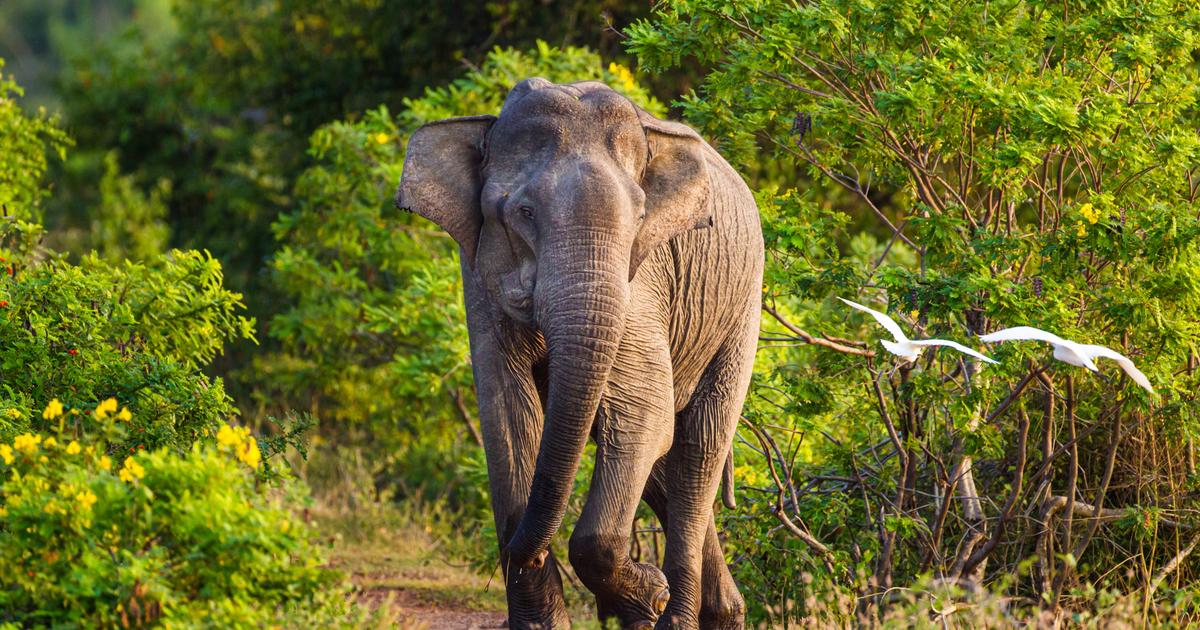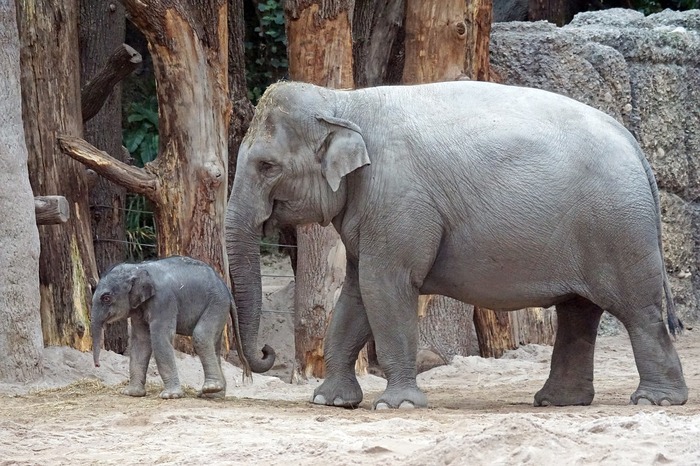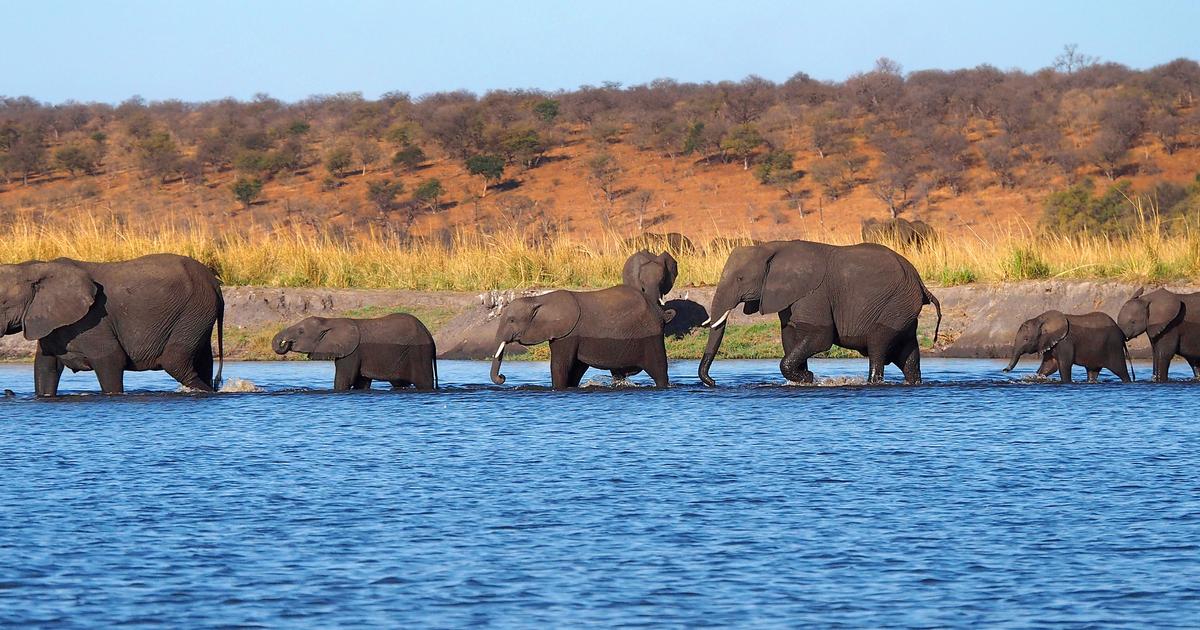Pompey the Great organized games in 55 BC such as had never been seen in Rome: wild elephants against Getual hunters, the same ones who captured them in Africa. However, as Marina Belozerskaya recounts in
The Medici Giraffe
(Gedisa), what happened was extraordinary: before the nobility of the animals, the Roman spectators sided with the elephants. Pliny, the greatest naturalist of antiquity, says that "Pompey's elephants tried to win the compassion of the crowd with gestures of supplication." The naturalist not only believed that they were as intelligent as humans, but that they were capable of understanding their language.
"The books of Latin zoologists always started with that story," explains writer José Emilio Burucúa, author, along with Nicolás Kwiatkowski, of
Natural and Mythical History of Elephants
(Ampersand).
“They thought that between elephants and humans there was a deep empathy.
There is the central nucleus of the idea that exists in the West of the elephant ”.
Burucúa recalls that Plinio, in Book VIII of
Natural History
, "increased sympathy towards them because he maintains that they have many emotional and intellectual traits that bring them closer to humanity."
More information
The odyssey of being an elephant
Africa's elephants approach the abyss of extinction
As that old story shows, elephants, the largest land mammal, have always been an animal different from all others, with a presence commensurate with their size in cultural history. In addition, especially since the studies of Cynthia Moss in the Amboseli Park in Kenya since the seventies, it has been confirmed that many of those myths have a basis of reality: their intelligence allows them what ethologists call "understanding third-party relationships" (knowing who the mother of another calf is, for example), a trait that appears only in creatures such as dolphins or great apes; their memory enables them to recognize hundreds of individuals or to remember water wells after years; its matriarchal social structure is based on solidarity. Not to mention the incredible handling of the trunk, a mix of nose, hand,eyes and machinery.
"They know perfectly who they are and who others are," writes naturalist Carl Safina in
Wonderful Minds
(Gutenberg Galaxy), one of the most influential books in contemporary ethology.
"Elephants make very deep bonds that develop over time."
They are able to communicate with each other, not only when they are close, but also at long distances using the vibrations on the ground that they unleash with their enormous bodies (up to six tons in males and three in females).
Elephants can live 70 years and accumulate and transmit to others all that vital wisdom.
An African jungle elephant in the Lekoli River in Congo.Getty
However, the possibility of these extraordinary beings disappearing like wild animals is increasingly real. The International Union for Conservation of Nature (IUCN) announced in March that the two populations of African elephants had been drastically reduced: that of forest elephants by more than 86% in 30 years and that of savanna. by 60% in 50 years. Those from the forest are "critically endangered" and those from the savanna are "endangered." There are 415,000 elephants left between the two populations and another half a million in Asia. The smaller Asian elephant and, unlike the African, domesticable, is also considered in "danger". All three are on the red list of threatened species.
"Unfortunately, I can imagine a world without elephants too clearly, even if I don't want to," explains Dr. Vicki Fishlock, who has worked since 2011 in Amboseli on the Cynthia Moss team. "The ecosystems in which elephants live are important for all kinds of species, and for cleaning the air and water far beyond the places where they live." The Spanish photographer Lisette Pons, who has been working and photographing elephants in Kenya for decades, points out: “Seeing them is an experience that marks a lifetime”. And then he adds, quoting the ethologist Joyce Poole, also an expert on pachyderms: "If the elephants disappear, there will be a deafening silence."
Coming across elephants in the wild is an experience that, indeed, changes the relationship with nature, either after seeing the lonely males, menacing and at the same time peaceful mountains in motion, or the matriarchal herds, always attentive to the young and well-being. common. And even in zoos, contemplating them is inexhaustible. The one in Madrid is home to a small herd of Bornean elephants that came six years ago from the Berlin park. Both his caregivers and the director of biology, Agustín López Goya, insist on his intelligence and empathy. "Their awareness of grief, their capacity for self-recognition, has been studied and it is known that if there are older elephants in the herd, they slow down the pace of the march so that they are not left behind," says López Goya. "And from Noah's Ark they speak of his patience and his wisdom."
Drawing of Hanno, the elephant of Pope Leo X, painted by Raphael in 1516.
History is full of famous elephants, as recounted in the books by Burucúa or Belozerskaya, from the Roman circuses, those that Hannibal dragged through the Alps or the Hindu pantheon of gods with Ganesha, the elephant god.
The great Renaissance painter Raphael in 1516 reflected in his drawing of Hanno, the elephant of Pope Leo X, all the strength and at the same time kindness of the pachyderms.
Humans, with the domestication of Asian elephants, have exploited since ancient times the violence that they are capable of displaying if they are provoked or feel threatened.
The Valencian researcher María Engracia Muñoz-Santos, author of
Animals in harena.
Exotic animals in Roman shows
(Confluences), believes that “Alexander the Great was the first to have contact with elephants in the war, in the first battle against King Poro (326 BC). But we know that they knew these animals since 327, when the ruler of Taxila gave him a few. From then on, Alejandro adds them to his ranks ”. And they also occupy a central place in popular culture, from Babar to Dumbo to Elmer.
However, all that cultural and animal world can disappear. Fiona Maisels, a scientist at the Wildlife Conservation Society (WCS) and associate professor at the University of Stirling, who has also been working with elephants in Africa (now in Gabon) for decades, is not optimistic about the future, especially looking at the past: “ Before the rule of humans on Earth, there were many species of elephants: only in the Pleistocene there were about 16. We have all heard of the woolly mammoths, of the mastodons of America. There were dwarf elephants in Corsica and Cyprus and dwarf mammoths in Sardinia and Crete. Now only three species remain. So we already live in a world with far fewer wild elephants than before. The decline of modern elephants is due in its vast majority to human activities, as has also happened in the past ”.
The disappearance of habitats and illegal hunting for ivory have been increasingly reducing their populations, until the red alert launched this year. "The elephant is more than a symbol," explains Burucúa. “If we humans are able to extinguish this colossal wonder it would be a tragic sign that we have reached a point of no return. To think of a world where we humans are and in which there are no elephants is devastating ”. The French novelist Romain Gary won the 1956 Goncourt Prize for
The Roots of Heaven,
that John Huston took to the movies.
Many consider that with this novel the contemporary environmentalist sentiment was born.
Its protagonist is Morel, a man who is dedicated to protecting elephants.
His philosophy is that “people feel so lonely and abandoned that they need something strong.
Dogs are old-fashioned: humans need elephants.
Their defense is the only cause worthy of a civilization ”.
You can follow CLIMA Y MEDIO AMBIENTE on
and
, or sign up here to receive
our weekly newsletter







